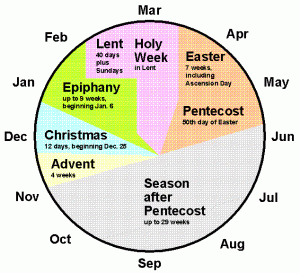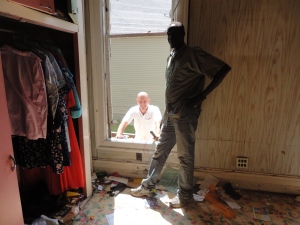
I recently came across an article written in 1910 explaining why the church was indifferent to child-labor reform (working to keep children from being used in factories as labor). In it the author brings up a set of reasons why the church frequently does not help much with social issues, and I found those points to be relevant even today. The author of the article was unitarian minister John Haynes Holmes, who co-founded the NAACP and later the ACLU. Of course there is always a danger of slipping into either of two ditches– to become so spiritual that you are of no earthly use, or to let your Christianity devolve into nothing more than social activity, unmoored from Christ.
Holmes saw 5 reasons as to why the Church was not active in stopping child labor. I think these can apply to us today. The reasons he puts forward are:
- Denominationalism
- Other-Worldliness
- Religion for Export
- Church-State separation (Call nothing common or unclean)
- Tyranny of the Pew
First, Denominationalism: Churches tend to focus on their own internal matters. Holmes says, ” Each church is so absorbed in keeping its own denominational machinery going and in solving its own denominational problems, that it has no time and strength to give to the machinery of society or to the solving of the vexing problems of modern social life (26).” This seems true today, as even with the decline of denominationalism, denominations still spend a great deal of time focused on denominational issues, structure, policy, and procedures and planning for their own church growth or development. Beyond denominationalism, large non-denominational megachurches which can spend a lot of their time focusing on their infrastructure, development of satellite campuses, etc.
Second, Other-worldliness: Holmes points out that “To-day, as for so many generations, the Church is laying the emphasis of its teaching upon the life beyond the grave, and is thus neglecting the life upon this side of the grave (27).” I am afraid that often we do focus on spiritual matters and spiritual development to the neglect of immediate societal concerns around us. We all know Jesus told us to clothe and feed the needy, and the Old Testament constantly says God wants us to help the widow, the orphan and the stranger (those in danger of oppression or neglect) and yet many Christians respond negatively to calls for social justice, assuming that the fact that we will always have the poor with us, the world we live in is full of sin and disrepair, and only a new heaven and earth to come can solve these problems, so there isn’t much point to trying to hard to put lipstick on this pig… This leads to a lot of lack of concern about earthly affairs– Christians frequently have a slash-and-burn approach to environmental concerns since “its all going to be burned up anyway at the final judgement” so why worry about trying to save the planet? God’s providence will govern anyway, and God’s will will be done, so who am I to intervene? But this other-worldliness is problematic not only scripturally (we are to be stewards of the earth (Gen 2:15), and we are called to help the orphan and widow and stranger (Exodus 22:21-24), and to pursue justice (Prov. 24:24-25)) Isaiah 1:17 quite clearly tells us “Learn to do right; seek justice. Defend the oppressed. Take up the cause of the fatherless; plead the case of the widow.” So of course Christians believe Christ is returning to judge the living and the dead– and that there will be a new heaven and new earth one day, but we also are clearly called in this life to live it with a strong concern for justice and redemption of the earth, to be stewards of the earth and to help bring redeeming grace to the world, especially to those who are weak and vulnerable– both spiritual and material blessings of grace.
Third, Religion for Export: Here Holmes points out how that the church was spending so much of its resources to spread its influence abroad that it was frequently neglecting concerns closer to home. The focus on foreign missions distracted people from helping in their own backyards. He says, “there is no easier way to arouse the enthusiasm of the churches than to inaugurate a foreign mission campaign, and nothing harder to accomplish than to interest the churches in a campaign for the redemption of our own society (29).” There has been a decline in a focus on foreign missions in recent years by Churches, at least long term missions (short term missions has exploded in the last 30 years of course). But again, sending our church congregation from the US to Tanzania to go help paint a schoolhouse there may not be the best use of our resources, especially if we are not very involved in local misisons close to home.
Fourth, a non-intervening approach to governmental policy or business practices. Holmes titles this section “Call nothing common or unclean” but what he describes is the Church’s focus on spiritual, rather than secular (governmental or business) matters. Such a bifurcation of one’s faith from one’s business or social practices is where the notion of “Sunday morning Christian” arose– where one practices one’s faith on Sunday, and then its back to business as normal M-F (who knows what goes on on Saturday). Holmes says the Church has frequently acted as if “religion, as such, has nothing to do with political or industrial questions of any kind. This idea has its root in that fallacious distinction which has always been made between sacred and secular, and which has consigned to the care of the Church the one, and frankly removed from its control, or even interest, the other. The Church, it is argued, has to do with spiritual, not worldly matters (30).” Of course there have been particular issues that Christians have gotten concerned with politically– one of the biggest for evangelicals and Catholics being the anti-abortion movement. Today there is so much allignment between political and religious affiliation at times that it can be a problem– when it comes to a point where a Democrat, or a Republican (depending on your Church) wouldn’t feel welcome in the pew. But it isn’t clear that we are always focusing on the most important societal issues for Christians.
Firth, the “Tyranny of the Pew” which is the problem that many in the pews who pay the pastor’s salary are benefiting from injustice in society, so they don’t want their practices to be criticized. Holmes says, “the men who are most largely responsible for the labor of children, the men who employ these children and grow rich from the wealth these children create, these men are many of them sitting in the front pews of the churches, occupying offices in parish committees, and paying the salaries of the ministers (30-31).” It is certainly difficult for a pastor to speak things to a congregation which are difficult to hear. When the sermon’s critique gets a little too close to home, people get upset.
So obviously, 111 years later, we live in a much different world, and the Church has learned and grown in certain respects. But it seems to me that Holmes’ criticisms still ring true in many respects. Of course we have learned that there is a “Hole in Our Gospel” (Stearns, 2010) which arises from us spending all of our energy studying scripture, and not acting to apply it practically around us, But while we perhaps know that intellectually, still we frequently remain problematically inactive in living out the gospel in ways to impact our society. Some are much better at this than others of us, but it is a struggle and a deficit which seems to be all too real.
There are many societal concerns the church can help with– not only concerns of abortion or religious liberty, but also concerns having to do with the environment, racism, and fair and even generous treatment of all people. We cannot tackle all of them, and God might have uniquely positioned some of us to help with specific issues more than others, but we each need to ask ourselves if we are fully living out the gospel, and in what ways might we be shirking those callings because of the 5 criticisms Holmes offered to us back in 1910…
May God have mercy on us all.
Andy Gustafson
PS. As an interesting aside in relation to the recent hubub about Dr. Seuss, Holmes was also a pacifist, I understand, and during WWII he called on the US to remember that Japanese were people too and our ‘brothers’. Theodor Geisel (Dr. Seuss) responded with the mocking political cartoon below.

Holmes, John Haynes. “The Indifference of the Church to Child Labor Reform” The Annals of the American Academy of Political and Social Science , Mar., 1910, Vol. 35, Supplement. Child Employing Industries (Mar., 1910), pp. 23-32.






























